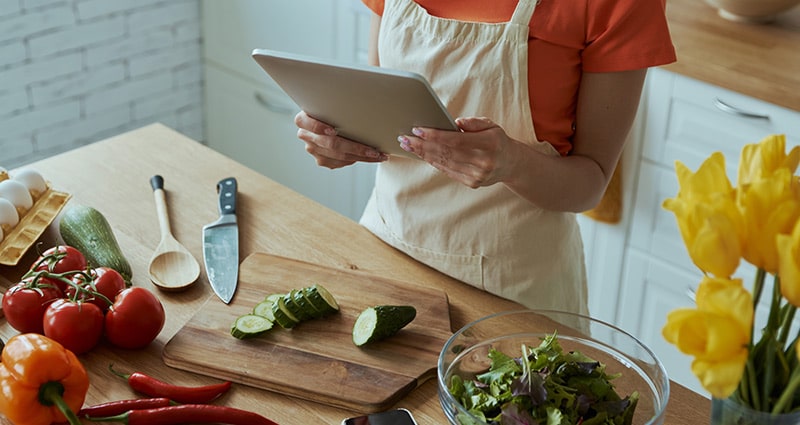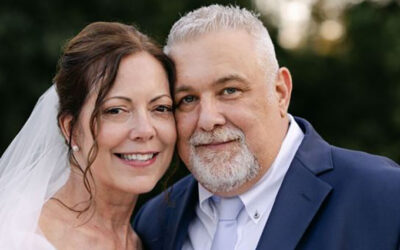TikTok has quickly become one of the most popular social media apps, especially among young people. The app can be a great place to watch funny videos or find your next dance moves.
Food and wellness influencers have also made a huge impact. Viral recipes like “TikTok pasta” created a temporary shortage of feta cheese in some grocery stores, and inedible stunts like “NyQuil chicken” have garnered public health warnings. TikTok diet influencers have spawned a lot of trends—and in some people, a lot of damage. Here’s why getting your dietary advice from a viral video may not be such a great idea.
1. It Might Be Fake
You might have seen viral videos with someone pretending to make nachos on the kitchen counter or eat a bowl full of bugs. No surprise: The content creators behind them are just trying to rack up views and reactions, not to convince you to actually prepare dinner on your counter or gobble up worms. Similarly, many videos touting fad diets or miracle weight loss products use altered videos, stock photos or other deceptive techniques to promote their false claims.
2. It Might Be Unhealthy
If losing weight was easy, every person would be at the ideal weight for their body type. But genetics, medical conditions, medications, hormones, age and all kinds of other factors make weight loss—or weight gain—different for almost every person. The fact is that most “#diethacks” won’t do anything to improve your wellness or speed up weight gain/loss. While some trends, such as lettuce water or lemon coffee, might be harmless (other than their questionable taste), others, such as “dry scooping” workout powders, can be dangerous to your body, causing cardiac issues or other problems. Remember, when it comes to weight loss, if it sounds too good to be true, it probably is.
3. It Might Encourage Disordered Eating
Although TikTok claims to have cracked down on users and videos that promote eating disorders, it’s still easy to stumble onto them. TikTok’s algorithm is also designed to show you videos similar to what you watch and engage with, which has led some teens to fall down a rabbit hole of videos promoting “tips” to lose dangerous amounts of weight.
Even comparatively benign “What I Eat in a Day” videos can be triggering, especially for someone who already struggles with disordered eating or body image issues. Once established, eating disorders are notoriously hard psychiatric issues to treat.
Look for Trustworthy TikTokkers, and Talk to Your Doctor
One benefit to all the faulty advice posted on TikTok is that it has prompted many physicians and nurses to join the app, specifically to debunk misinformation. If you see a video from a person claiming to be a medical professional, it’s easy to fact check if they are, in fact, licensed. Every state has a public registry of doctors’ and nurses’ licenses.
Bottom line: The best way to get advice about your diet is to talk to your own primary care provider. He or she knows your medical history and can tell you what types of diets could be dangerous to you. If you need help with meal planning or sticking to your healthy eats, your PCP can recommend a licensed dietitian to help you. Your PCP can also help assess whether you could benefit from medically supervised or surgical weight loss.




